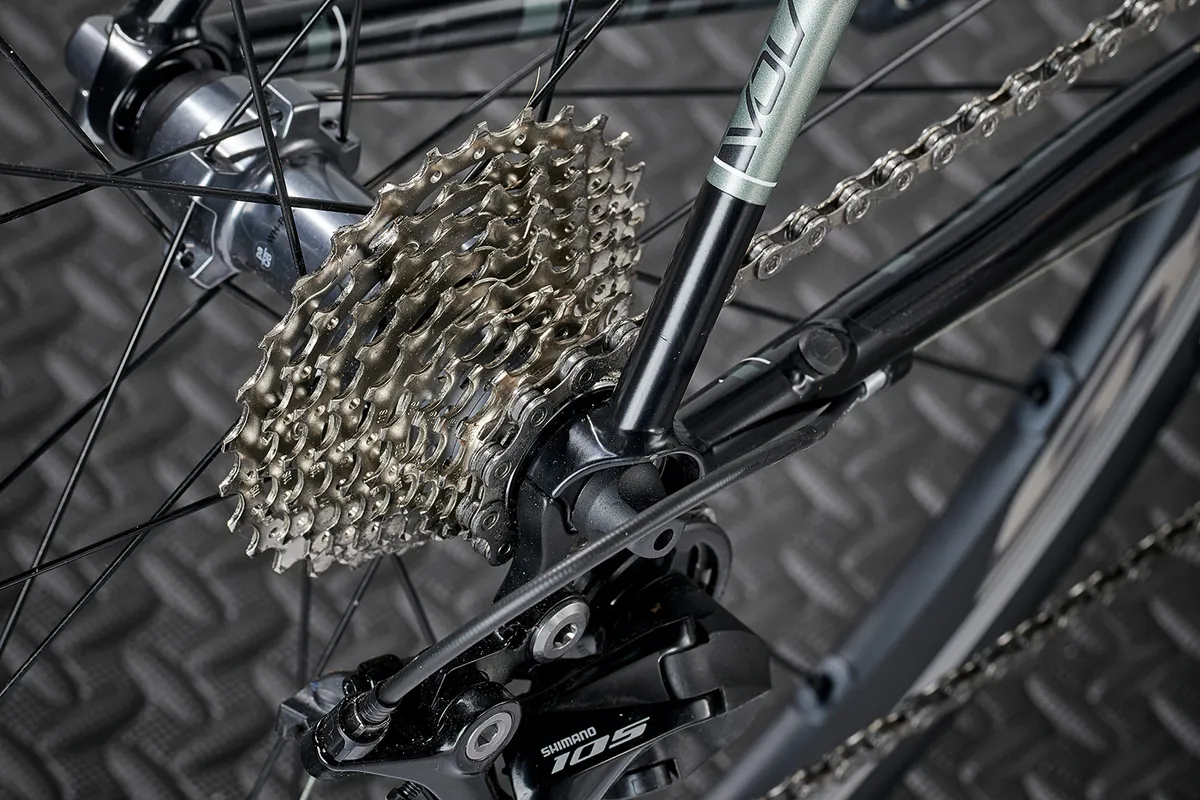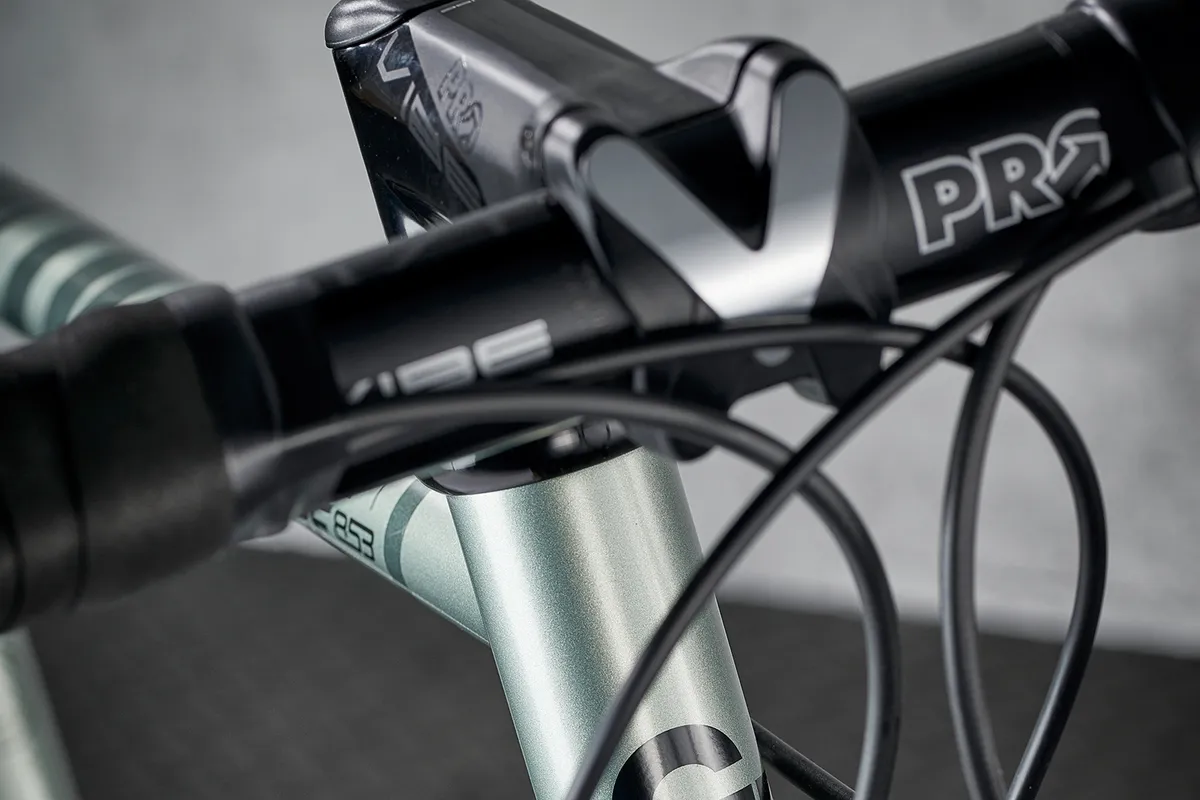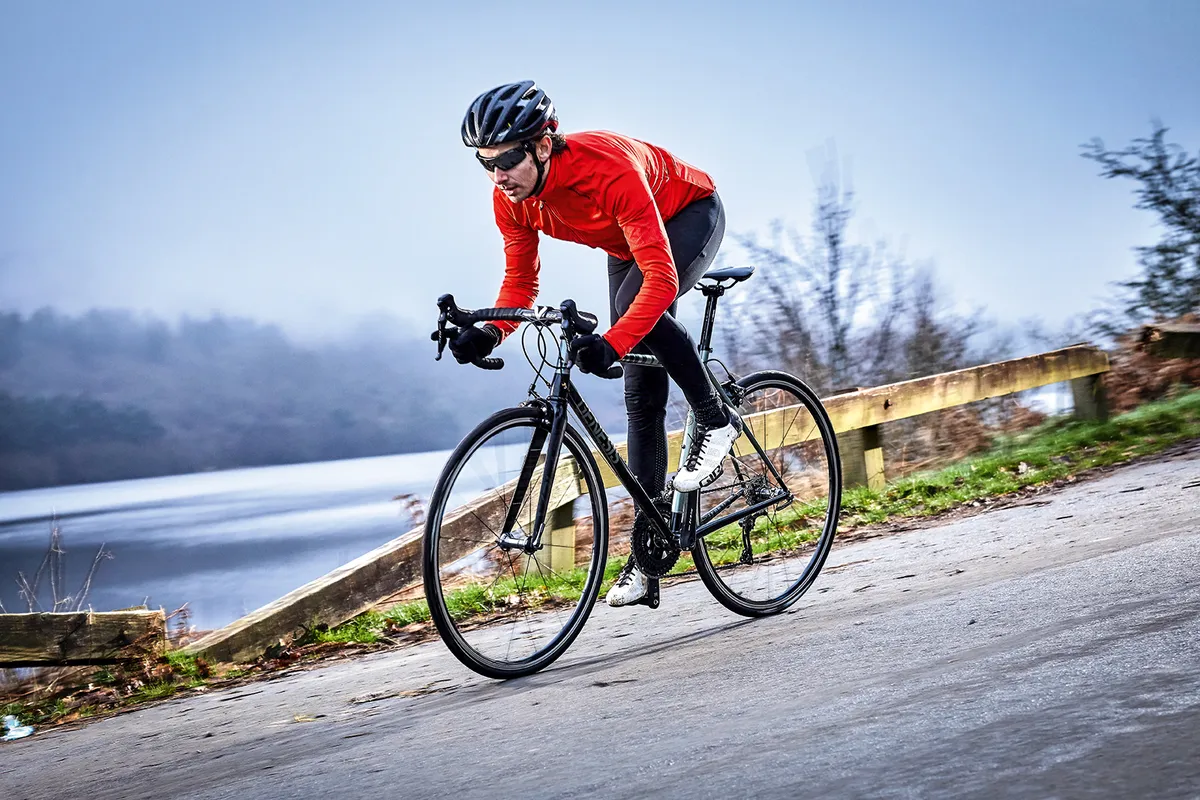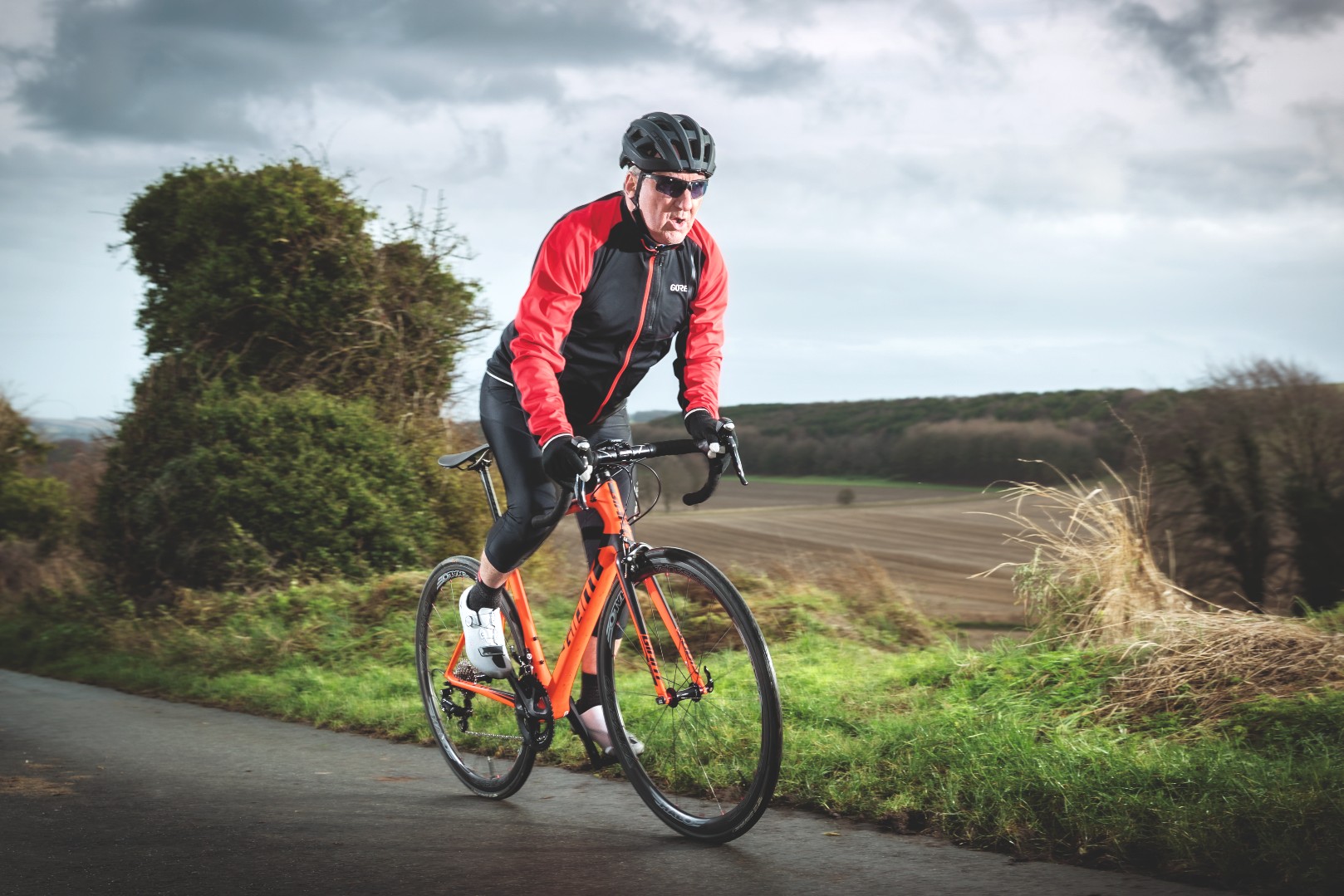Genesis' Volare was born as a steel racer and the Volare 853 is the more affordable sibling of the Volare 953 frames that were ridden successfully on the road by the Madison Genesis Pro Team, but which unfortunately folded last year.
What the Madison Genesis Team demonstrated was that, even today, it’s possible to race on a steel frame. Yes, steel isn’t as light as carbon, but in this guise it’s stiff enough for racing without being punishing.
On test with four other steel bikes it shares its racing heritage with the Cinelli Vigorelli, inspired by criteriums, but the other three have more all-round leanings: the All-City Zig Zag, The Light Blue Darwin and Spa Cycles Elan 725.
Genesis Volare 853 kit and specifications
My test bike’s Reynolds 853 is the ‘highest-spec’ steel frame on test, 853 being a seamless air-hardened steel that is both high in strength and resistant to damage. Its UTS – ultimate tensile strength – is higher than that of the 725 used in two of the other bikes.
The compact steel frame ensures that a lot of the seatpost is exposed, which adds an extra degree of comfort to the ride.

Apart from sticking with calipers (though a disc-braked Volare 853 is also available) in many ways this is a very modern frame.
The head tube is tapered, the frame has routing for Di2 cabling and there's a press-fit bottom bracket – you’ll be pleased to hear this was a creak-free zone.
The groupset? Well, Genesis is distributed by Madison, which is also responsible for Shimano in the UK, so it’s a complete Shimano 105 with caliper rims. Luckily, these are among the best caliper stoppers out there, so I had no complaints.
The 34x28 pairing results in the lowest bottom gear out of the five bikes on test, which did make steeper hills more challenging, but because the Volare is also sold as a frameset you can spec the gearing for your own needs.
The wheels are quite a modest Shimano RS pair but they ran smoothly. I’d keep these for training and up-spec to a set that would do the frame justice. The same isn’t true of Maxxis’ 25mm High Road tyres, which are very much race-day rubber.
Developed along with the UK-based Canyon Eisberg team, they’re supple and offer good grip but at £50 a go, it’s what I would expect. The cockpit is from Shimano’s associated PRO brand.

Genesis Volare 853 ride impressions
The Volare 853 actually has a comparatively modest setup overall and a middling 8.48kg weight, but in spite of that, the bike absolutely flies.
It hustles up to speed quickly, is extremely chuckable around corners and descends sharply and surefootedly, helped by grippy tyres – and I think it’s safe to say most of us will find our limit before the bike.
Its extra weight ensures you’ll be a little slower up the steepest hills where gravity trumps aerodynamics, but unless you’re a diehard grimpeur (climbing specialist) this is a small price to pay, it is for me, anyway.

Genesis’ Volare is a real treat, a sublime steel bike with a ride probably not that dissimilar to those ridden by the likes of multiple Tour de France winners Eddy Merckx and Jacques Anquetil. But even the 11-28 gearing – a smaller range than I’d go for in an ideal world – provides a much wider range than race bikes of yore, while the compact frame prevents it getting too harsh.
This isn’t one for the pootler to dawdle along on, but for those of us who want to be more competitive – chasing Strava segments or looking for a bike for fast sportives – and to stand out from the carbon-riding crowd. The Volare has the speed and handling chops and enough comfort that you won’t feel beaten up at the end.
Mudguards, rear rack? Not really, though you might squeeze in blades. But if you want to crank up the gear, pump your thighs and ride to the max on a steel bike that should last a lifetime, this Genesis delivers.
Genesis Volare 853 overall
I loved riding the Genesis, a bike that asks – demands even – to be ridden fast, but to make the most of the quality Reynolds 853 frame I’d ideally pair it with a lighter, more aerodynamic set of wheels to make it really fly.
Genesis Volare 853 geometry
- Sizes (* tested): S, M*, L, XL
- Seat angle: 73.5 degrees
- Head angle: 73 degrees
- Chainstay: 40.7cm
- Seat tube: 52cm
- Top tube: 55.4cm
- Head tube: 14.5cm
- Fork offset: 4.5cm
- Trail: 5.4cm
- Bottom bracket drop: 7cm
- Wheelbase: 983mm
- Stack: 56cm
- Reach: 38.5cm
How we tested
This bike was tested as part of a five-bike grouptest of steel road bikes and road-biased all-rounders.
Steel might be the oldest of bike building materials but can be used to create comfortable, long-lasting and repairable bikes. It's also recyclable, so better for the planet than you might think.
Modern tastes are felt though with disc brakes, tubeless tyres and clearances for wider rubber all making an appearance.
Bikes also tested:
- All-City Zig Zag
- Cinelli Vigorelli
- The Light Blue Darwin Two Way Street
- Spa Cycles Elan 725
Product
| Brand | Genesis_bikes |
| Price | £2615.00 |
| Weight | 8.48kg |
Features
| Fork | Full carbon |
| Stem | PRO Vibe alloy |
| Chain | Shimano HG601 |
| Frame | Reynolds 853 |
| Tyres | 25mm Maxxis High Road |
| Brakes | Shimano 105 rim calipers, cartridge brake blocks |
| Cranks | Shimano 105 50/34 |
| Saddle | PRO Falcon |
| Wheels | Shimano RS |
| Headset | Prestine F17 |
| Shifter | Shimano 105 |
| Cassette | Shimano 105 11-28 |
| Seatpost | RO Vibe alloy 27.2mm |
| Handlebar | PRO Vibe alloy |
| Bottom bracket | Shimano 105 press-fit |
| Available sizes | S, M, L, XL |
| Rear derailleur | Shimano 105 |
